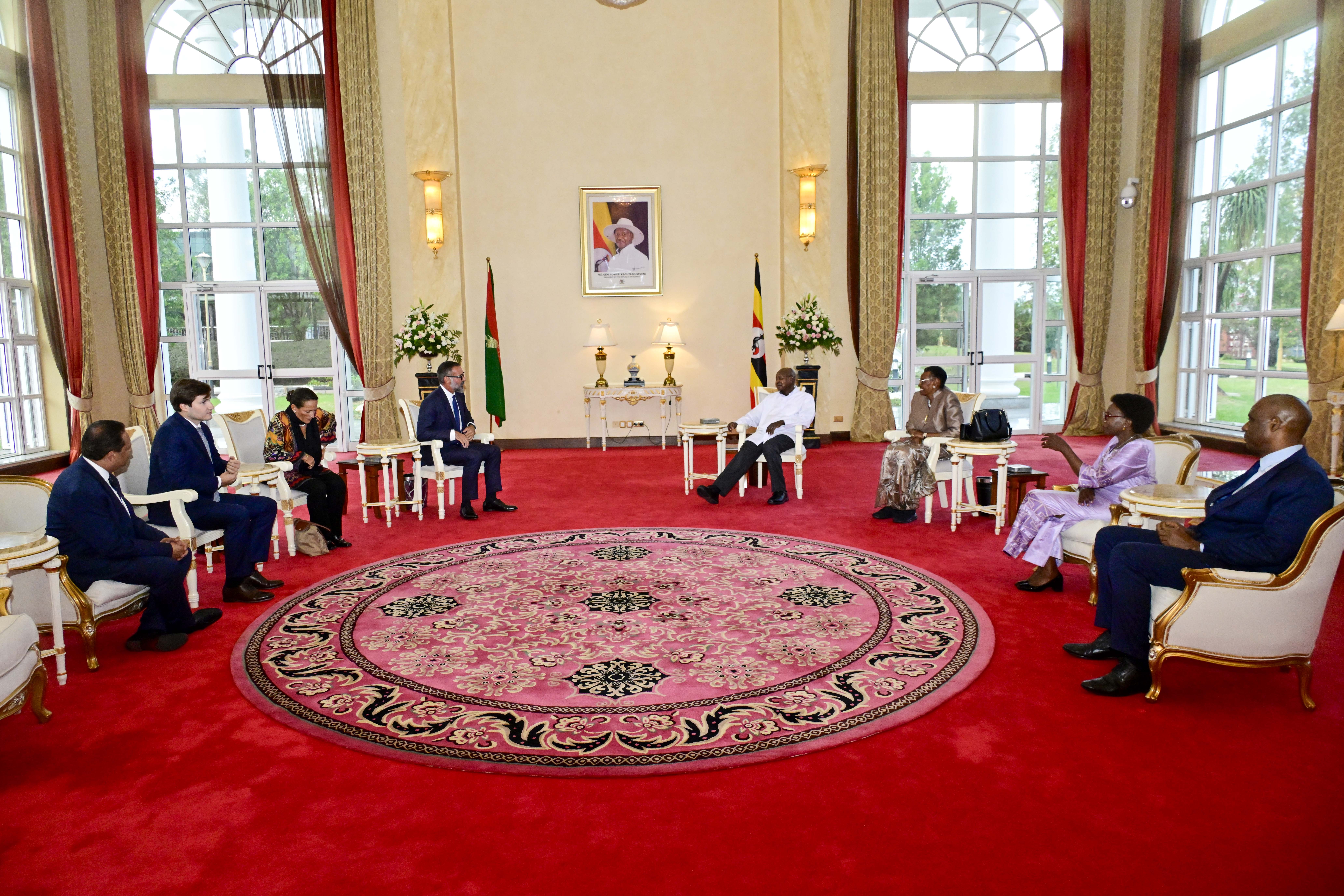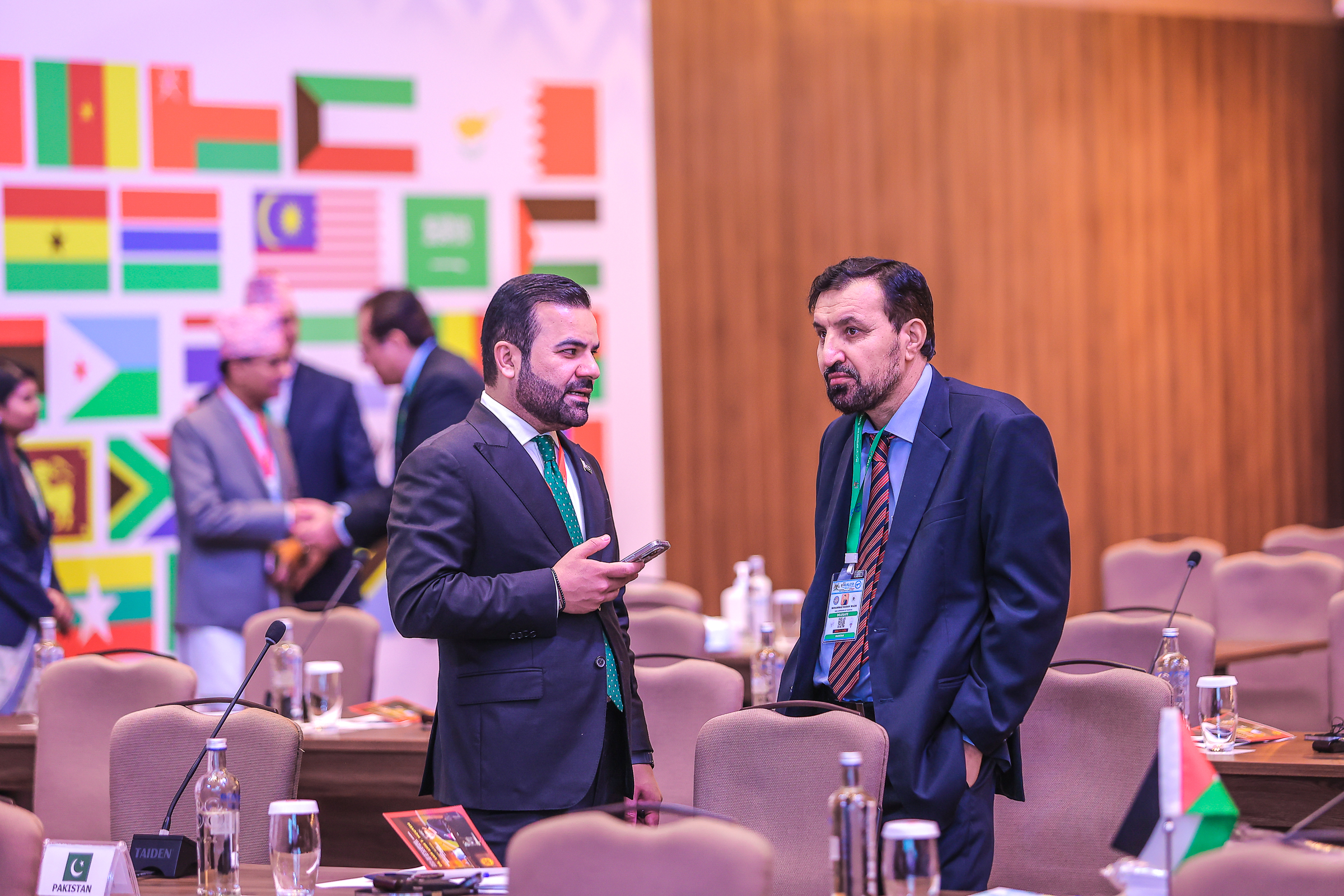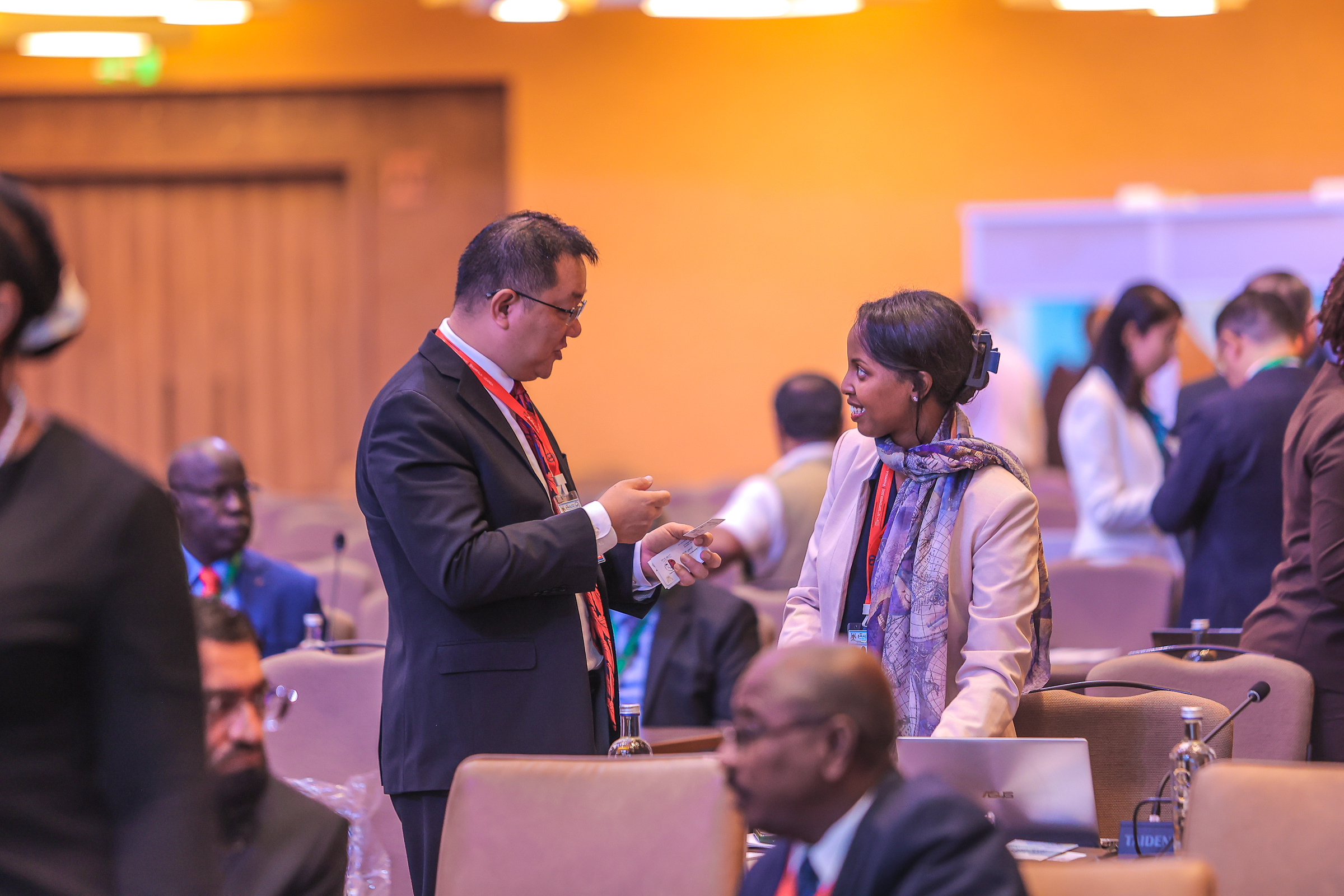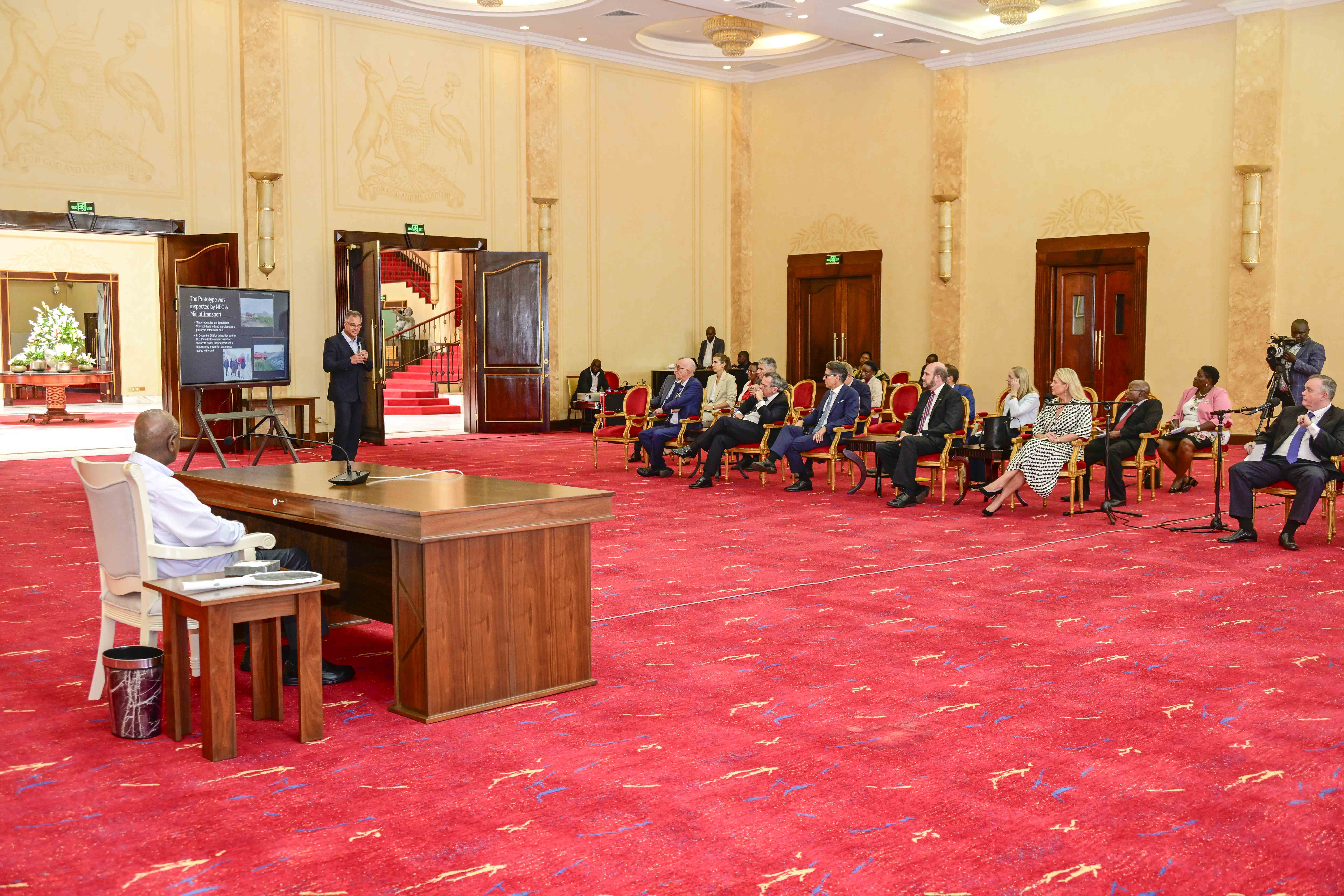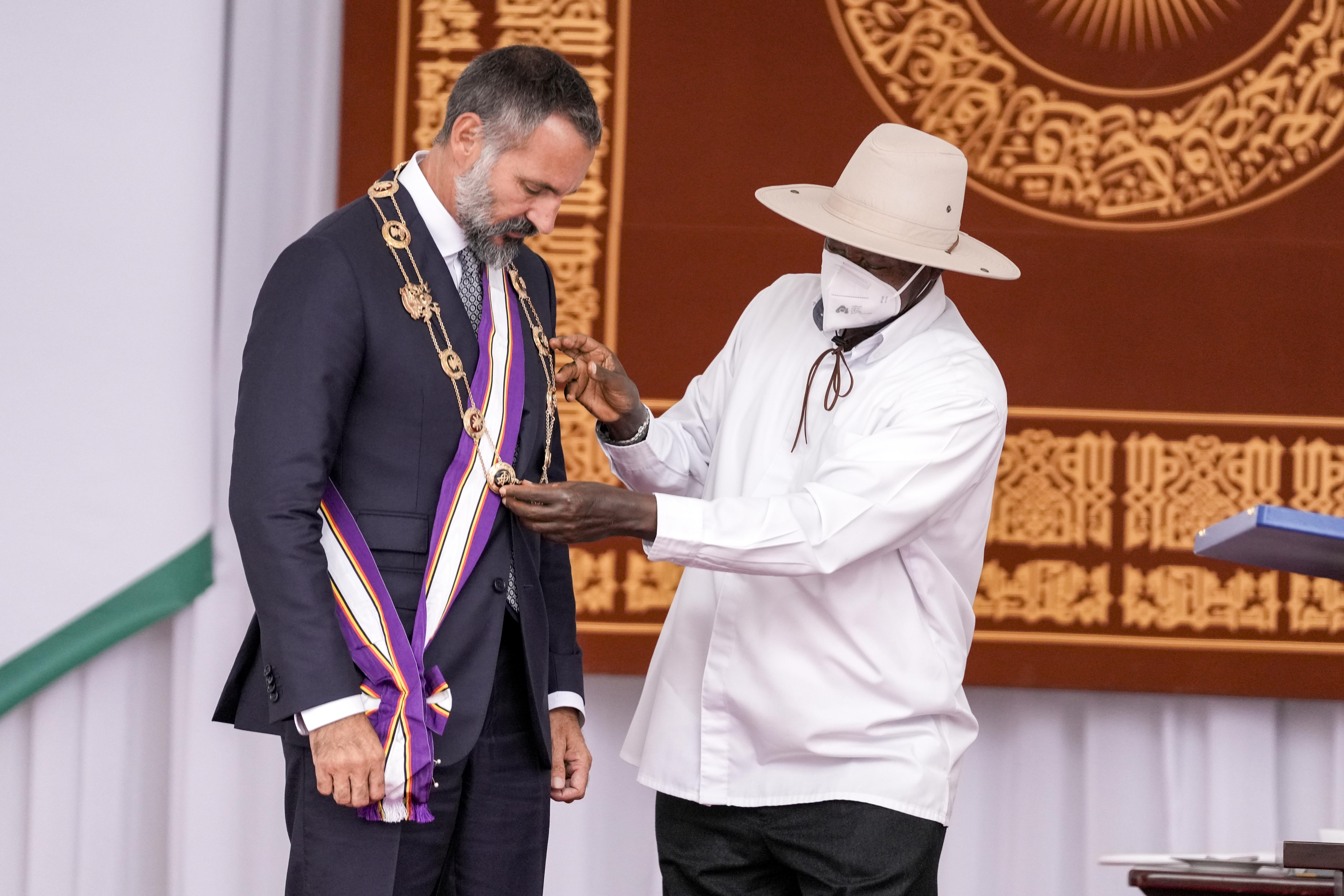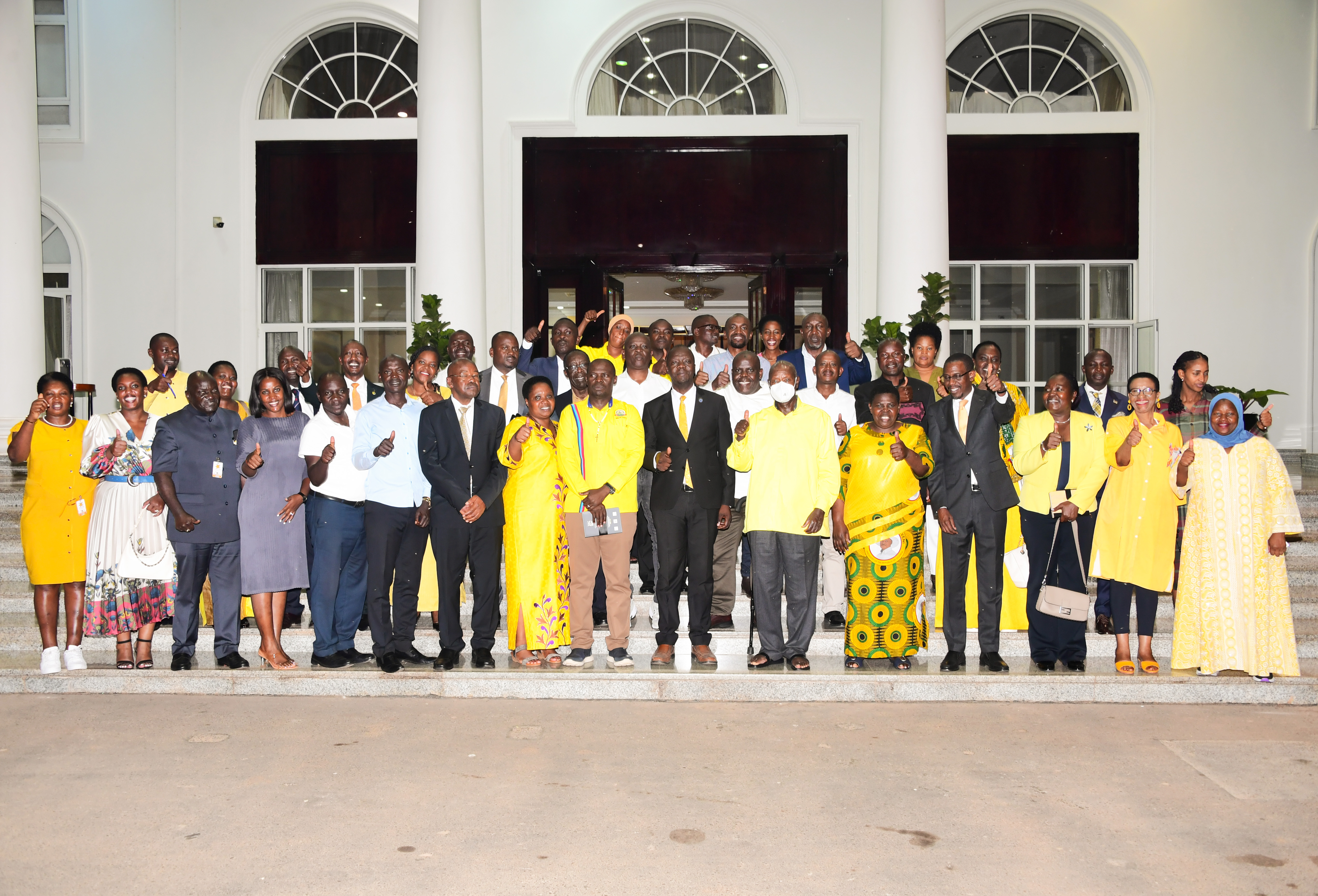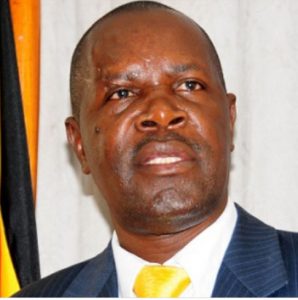PRESIDENT MUSEVENI SET TO ASSUME CHAIRMANSHIP OF APR FORUM NEXT YEAR
President Yoweri Kaguta Museveni will assume the chairmanship of the African Peer Review (APR) Forum of Heads of State and Government in February 2026, a role that will see Uganda take the lead in guiding continental governance and development priorities. President Museveni will take over the chairmanship from Algerian President Abdelmadjid Tebboune. He will serve as Chairperson of the APR Forum for two years, from February 2026 to February 2028. The announcement was made today during a briefing at State House Entebbe with a delegation from the African Peer Review Mechanism (APRM) Continental Secretariat, led by Ambassador Marie-Antoinette Rose Quatre, Secretariat’s Chief Executive Officer alongside Uganda’s APRM Focal Point, Hon. Amos Lugoloobi, Minister of State for Finance, Planning and Economic Development. The APR Forum of Heads of State and Government is the highest decision-making body of the African Peer Review Mechanism, bringing together African leaders to evaluate governance practices and promote political, economic, and corporate reforms across the continent. Ambassador Quatre, explained: “At the opening ceremony, H.E. Abdelmadjid Tebboune, President of Algeria and current Chairperson, will hand over the APRM and AU flags, as well as the gavel to Your Excellency.” “You will then deliver your inaugural statement as Chairperson, guide the closed Summit session, and later present the Forum’s report to the AU Summit.” She added that Uganda’s leadership will extend to various APRM structures. “Your Excellency, the APRM Focal Point of Uganda will automatically assume the Chairmanship of the APRM Focal Points Committee, while the National Governing Council and Secretariat will also take on leadership roles at continental level. We feel privileged that this great responsibility will be under your stewardship.” In his response, President Museveni welcomed the chairmanship, describing the APRM as a good initiative that allows African leaders to share ideas and correct historical mistakes. “I thank you for the brief. The APR was a good initiative because it gave us a chance to share ideas. The biggest mistake since independence has been the issue of ideas people were groping in the dark, touching here and there, and with a false sense of sovereignty, they feared that sharing ideas would be seen as interfering in internal affairs. As a result, we lost a lot of time until this opportunity came up,” the President said. President Museveni, drawing on six decades of political and economic observation, likened Africa’s challenges to Europe’s intellectual struggles during the renaissance. “I have been watching and involved for the last 60 years, and I have seen all sorts of conceptual mistakes. This is not new even Europe went through the same. At the time of the Renaissance, they ran up and down with confused ideas. Those who studied economics thought mercantilism was the solution, believing that if they had gold and silver, they had made it,” he said. The President noted that it took the writings of Adam Smith to correct this direction. “Smith pointed out that the critical issue was division of labour, specialization and exchange. Once that was understood, people began to wake up. It stressed micro-economic operations, which are the building blocks of wealth creation,” he explained. “That is why this APR platform is important; it gives us the opportunity to exchange and refine our thinking.” Looking ahead to the February session where he will chair, President Museveni highlighted market integration as a key aspect for discussion. “It will be good to audit in February, and I am sure market integration will be one of the ten points for discussion. If businesspeople don’t have a guaranteed market, how do they expand? That is the problem of Latin America. It has more resources than the USA; rivers, forests, minerals but because of poor organization, business cannot succeed. Meanwhile in the USA, if I produce a product in New York, it can reach California with ease, backed by numbers and purchasing power,” he explained. On industrialization, the President issued a stern warning against Africa’s continued export of raw materials. “Selling raw materials is a disaster. For every raw material you sell unprocessed, you are donating money and jobs. If you want copper, process it to 99.9% purity. Some can serve our local industries, and the rest can be exported. That way, we benefit through vertical and horizontal integration,” he said. He added that Africa’s competitiveness depends on reducing production costs. “You must have low transport costs, low electricity costs, and affordable bank credit. Without these, how can manufacturing survive?” the President emphasized. President Museveni also expressed confidence in Uganda’s readiness to chair the forum. “I am very happy and looking forward to this responsibility,” he said. Hon. Lugoloobi, in his remarks, praised the timeliness of Uganda’s preparations. “These consultations come at the right time as we align with continental initiatives such as the rationalization of African credit rating agencies and the African Migration Governance Conference, already approved by Cabinet,” he said. The Minister assured the delegation that the government had mobilized fully to support the President’s leadership. “We propose that during Uganda’s tenure, the Forum focuses on addressing the bottlenecks hindering social transformation including weak infrastructure, governance gaps and insecurity,” he said. Hon. Lugoloobi added that Kampala will automatically become the APRM Capital once President Museveni assumes the chairmanship. “We look forward to significant milestones that will cement Your Excellency’s legacy. With your leadership, we are certain the APRM will reach another level,” he said.

